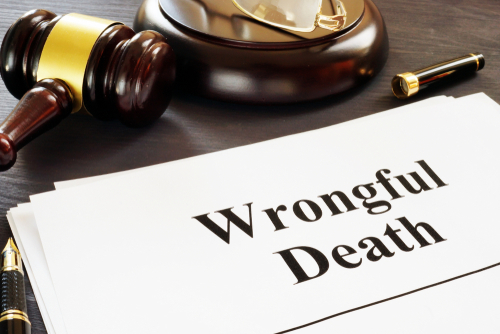Wrongful death occurs when somebody is killed because of another person, party, or entity’s negligence. Sometimes criminal charges are made due to the death; however, a wrongful death lawsuit is a civil claim. That means the standards of proof are lower, and civil claims have a separate outcome than a criminal conviction for murder or manslaughter.
Personal injury legal professionals have faced wrongful death lawsuits such as medical malpractice, motor vehicle accidents, toxic torts, manufacturing defects, or criminal activity.
Each state has its own criteria and procedures for filing a wrongful death lawsuit. Florida outlines its stipulations for wrongful death claims in statute 768.21. Fasig and Brooks suggest speaking with Florida wrongful death law professionals right away if you’re concerned about protecting the rights of your wrongfully deceased loved ones
Survivors and Wrongful Death Lawsuits
If someone gets killed by a negligent driver operating a vehicle while intoxicated or driving while distracted, the surviving family members may be able to file a wrongful death lawsuit. Drivers owe a duty of care to others to act reasonably and responsibly behind the wheel. Drivers are at the very least expected to follow traffic laws and operate their vehicles safely to avoid an accident.
Healthcare and medical treatment providers are also expected to meet a standard of care. That means trained and competent physicians and support staff should provide thorough, diligent care. If someone dies because of a medical mistake in a healthcare facility, then the patients’ families might qualify for wrongful death benefits.
Negligent doctors that fail to meet the standards of care outlined by their state or whose actions caused a wrongful death can also be found liable. Suppose a physician misdiagnosed a patient’s condition or made an error during surgery that led to death. In that case, the doctor could be held liable, and family members may be able to sue the physician in civil court.
Who Can Sue For Wrongful Death
Relatives of a person killed by the actions of another individual may file a wrongful death lawsuit. For example, if a person attacks another and causes serious injuries that lead to the victim’s death, survivors can sue the attacker for wrongful death.
Family members may file a wrongful death lawsuit despite the criminal charges the individual may already be facing. Since the burden of proof is lower in a civil lawsuit than in a criminal case, survivors can obtain compensation through a personal injury wrongful death civil suit even if the person responsible was not convicted in criminal court.
Spouses, children, parents of unmarried children, and other close parties may sue a negligent party for wrongful death depending on what your state law allows. A wrongful death lawsuit must be filed by a representative on behalf of the eligible survivors who suffered losses because of the decedent’s death.
Survivors are called real parties in interest, and eligibility differs from state to state. In all states, spouses, children, and the parents of unmarried children may act as representatives and in some states, other people like siblings, grandparents, putative spouses, and financial dependents may recover damages.
Generally, whoever is bringing the suit must prove the death was caused by someone else’s negligence or intentionally wrongful actions. Also, they must prove that the surviving family members have suffered losses because of the death and are eligible to recover damages. They can be appointed as a personal representative of the decedent’s estate if necessary.
Damages You May Recover In A Wrongful Death Suit
All eligible individuals who bring a lawsuit for wrongful death may recover both economic and non-economic damages. These damages are to be distributed to eligible family members to begin the recovery process.
Economic damages include medical and funeral expenses, out-of-pocket expenses, lost household or other services, loss of support and income, and lost prospect of inheritance. When an adult wage earner with children dies, their children may recover economic damages for the loss of parental guidance.
Non-economic damages may also be recovered in a wrongful death claim. These types of damages include loss of consortium, pain and suffering, and the other costs that are harder to measure but have a profound impact on the surviving family member’s lives.
In some states, juries award punitive damages if the decedent died due to egregious conduct and gross negligence of the defendant. However, in many states, punitive damages are not permitted.
A decedent’s survivors may also obtain a survival action that allows the decedent’s estate to get damages for the decedent’s pain and suffering before dying. Any legal questions you have about your wrongful death claim can be answered by an experienced personal injury professional in your community today, and many offer free consultations.








